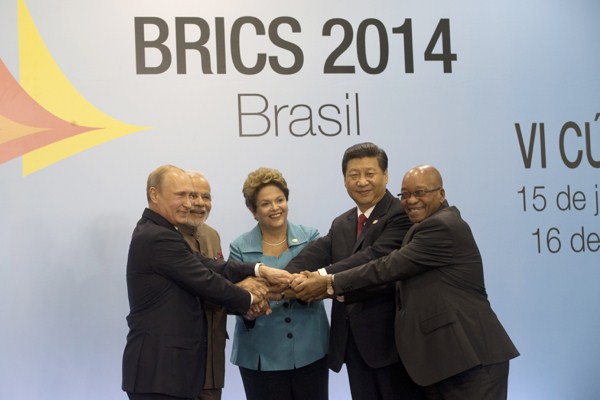The BRICS grouping must rank as one of the oddest geopolitical blocs in history. It was born in 2001 from the mind of a Wall Street economist as little more than a mnemonic shorthand device to describe the growing importance of developing economies. Ever since, the five countries it comprises—Brazil, Russia, India, China and South Africa, a later addition—have been trying to transform their snappy acronym into a global player.
Nobody has promoted the ambition to leverage the BRICS bloc into a source of influence more enthusiastically than Russian President Vladimir Putin, who sees the grouping as a potential vehicle for challenging the West. That goal has become particularly appealing to him in the past two years, as Moscow’s meddling in Ukraine led to steadily deteriorating ties with the West and the imposition of international economic sanctions.
After years of talking, the BRICS are about to create a tangible institution, a BRICS development bank that will aim to challenge the dominance of the Washington-based International Monetary Fund and World Bank.

